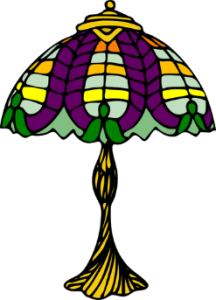13 Section 5-4: Sondern vs. aber
5.4: Sondern vs. aber
You have already learned several of the coordinating conjunctions:
aber—but
denn—because, for
oder—or
und—and
These conjunctions combine two complete sentences together. Each sentence, as always, will have the verb in second position.
- ABER: Ich verdiene wenig Geld aber meine Schwester verdient mehr.
- DENN: Wir laufen schnell, denn Biologie beginnt in drei Minuten!
- ODER: Willst du heute kochen oder sollen wir im Restaurant essen?
- UND: Er kommt uns morgen besuchen und wir gehen in den Zoo.
There is one more coordinating conjunction that you haven’t learned yet: SONDERN.
Sondern is very similar in meaning to aber. It means “but instead” or “but rather.” In other words, you’re not doing one thing but instead some other alternative.
Ich wohne nicht in Deutschland, sondern in der Schweiz.
(I don’t live in Germany, but [instead/rather] in Switzerland.)
Notice that in the example above, there is a negative element in the first sentence—nicht. In order to use sondern to connect two sentences, you must have either nicht or kein in the first sentence. Also, the two things must be mutually exclusive—in other words, the two conditions can’t exist at the same time. In the example above, you can’t live in both Germany and Switzerland at the same time; it’s either one or the other→SONDERN.
Ich möchte keine blaue Jacke, sondern eine rote Jacke kaufen.
(I’d not like to buy a blue jacket, but rather a red jacket.)
I only want to buy one of them, not both. Both conditions can’t exist at the same time→SONDERN.
Der Angestellte ist nicht krank, sondern müde.
(The employee isn’t sick, but instead tired.)
The employee isn’t sick and tired at the same time, just tired. Both conditions don’t exist at the same time in this case→SONDERN.
BUT
Mein Zimmer ist nicht groß aber sehr praktisch.
(My room is not big but very practical.)
In this example, we have the negation word nicht but no sondern. Why have we used aber? Because the room can be both not very big and practical at the same time. Both conditions can exist at the same time→ABER.
Watch The German Professor’s video to see him reteaching this. (Watch out! There is one typo in the video; he forgot to put the –n at the end of sondern in one example.)
Ex. A: Partnerarbeit. Using the pictures below, ask each other questions using the cues provided. Respond using the correct form of dies– and don’t forget to include sondern in your answer. Remember: direct objects must be in the accusative case.
Beispiel: 

 kaufen
kaufen
A: Liest du das rote Buch?
B: Nein, ich lese nicht das rote Buch, sondern das schwarze Buch.
-


 reisen
reisen 

 tragen
tragen

 streicheln (to pet)
streicheln (to pet)

 bestellen (to order)
bestellen (to order)

 spielen
spielen

 anmachen
anmachen

 ankommen
ankommen

 besitzen
besitzen
EXTRA PRACTICE: Need extra practice with coordinating conjunctions? Do Germanzone.org’s online practice that will check your answers:
https://www.germanzone.org/coordinating-conjunctions-1/
Then try Dr. Claudia Kost’s (University of Alberta) extra practice with coordinating conjunctions:
Ex. C: Nicos Weg. Episode 48: Was macht dir Spaß? Watch the episode and do the online activities. You will learn some new words for hobbies.
https://learngerman.dw.com/en/was-macht-dir-spa%C3%9F/l-37630630
Ex. D: Nicos Weg. Episode 49: Mengen und Preise. Watch the video and do the online activities. You will review food and quantities, which you learned in Chapters 2 and 4.
https://learngerman.dw.com/en/mengen-und-preise/l-37628421
Ex. E: Nicos Weg. Episode 50: Was darf es sein? Watch episode 50 and do the online activities. You will review ordering in a bakery.
https://learngerman.dw.com/en/was-darf-es-sein/l-37635620
Ex. F: In der Bäckerei. Sie sind in der Bäckerei und möchten Brot und Kuchen kaufen. Stellen Sie mindestens drei Fragen und bestellen Sie etwas.
Ex. G: Nicos Weg. Episode 51: Sonst noch etwas? Watch the episode and do the online questions. You will review how to buy something at the market.
https://learngerman.dw.com/en/sonst-noch-etwas/l-37646611

REVIEW: It’s been a while since we reviewed modal verbs. See how many you remember. (Courtesy of Claudia Kost & Crystal Sawatzky, University of Alberta.)

